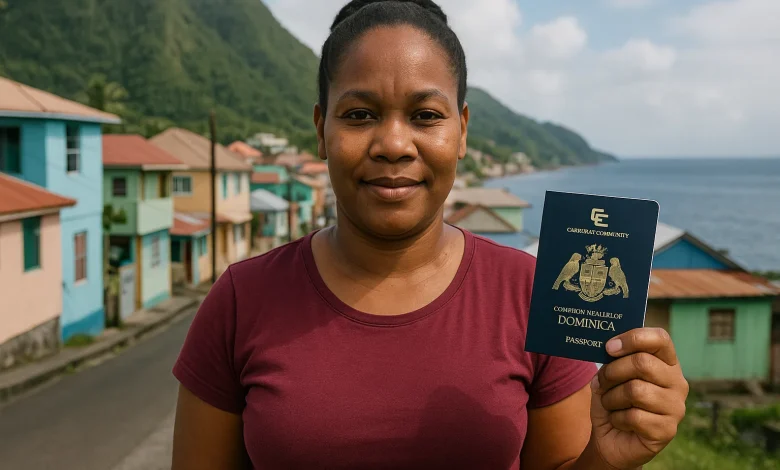Resident of Dominica

A Resident of Dominica is defined as someone legally residing in the Commonwealth of Dominica whether by citizenship, permanent residency, or through lawful authorization granted to foreign nationals staying on the island. Residency in Dominica connects to national identity, taxation, immigration law, property rights, and access to public services. It plays an important role in shaping the island’s demographics, the functioning of the judicial system, and the its relationship with the wider Caribbean Community (CARICOM).
Historical Context of Residency in Dominica
The definition of residency in Dominica has evolved through colonial, post-colonial, and independent legal frameworks. During the British colonial era, subjects living on the island were considered residents under imperial law, but movement and rights were tied to British nationality. Following independence in 1978 and the enactment of the Constitution, residency acquired a specifically Dominican legal meaning.
The Immigration and Passport Act and later amendments set out the conditions under which non-nationals may reside in Dominica. These conditions cover work permits, permanent residency, and pathways to citizenship through naturalization or marriage. In more recent decades, programs like the Citizenship by Investment (CBI) Programme have influenced residency patterns by attracting foreign investors who become citizens and establish residence in the country.
Categories of Residents
Dominica’s legal system recognizes several categories of residency:
- Citizens by Birth or Descent: Persons born in Dominica or to Dominican parents abroad are automatically considered residents with full rights.
- Naturalized Citizens: Foreign nationals who acquire Dominican nationality through naturalization or the CBI program are residents with equal standing to citizens by birth.
- Permanent Residents: Non-citizens granted indefinite leave to remain in Dominica under the Immigration and Passport Act.
- Temporary Residents: Foreign nationals on work permits, student visas, or other temporary authorizations.
- Regional Residents: Nationals of CARICOM states who benefit from mobility rights under the Caribbean Community agreements often establish residence for employment or education.
Each category carries distinct legal implications regarding taxation, property ownership, and access to social services.
Rights and Responsibilities of Residents
A Resident of Dominica enjoys rights guaranteed by the Constitution of Dominica, including protection of fundamental freedoms such as freedom of expression, assembly, and movement. Citizens who are residents also enjoy the right to vote in general elections, stand for public office, and benefit from social protection programs.
Responsibilities include compliance with national laws, payment of taxes where applicable, and adherence to immigration regulations. Permanent and temporary residents must maintain valid documentation, while citizens must carry national identification for official purposes.
The judiciary, including the High Court of Justice and the Court of Appeal, plays an important role in protecting the rights of residents, particularly in cases involving property disputes, family law, or immigration challenges.
Institutions and Agencies Involved in Residency
Several government bodies manage residency issues:
- Ministry of National Security: Oversees immigration policies, residence permits, and citizenship matters.
- Immigration Department of Dominica Police Force: Administers day-to-day residency and entry requirements.
- Dominica Bar Association: Provides legal support in residency and citizenship cases.
- Village Councils such as the Soufriere, Scotts Head, Galion Village Council, Castle Bruce Village Council, and Vieille Case Village Council often interact with residents in managing local governance.
Residency status also intersects with agencies handling land, trade, and tourism, especially under frameworks like the National Agricultural Policy and heritage tourism, which shape community development for local residents.
Modern Issues and Global Connections
Residency in Dominica is influenced by global migration, economic opportunities, and environmental changes. The Citizenship by Investment Programme has expanded the number of foreign residents with ties to international business and investment. Climate resilience programs, particularly after Hurricane Maria (2017), have reshaped government policy on housing and services for residents displaced by natural disasters.
Dominica’s membership in CARICOM also facilitates regional mobility, allowing residents to work, study, and trade within the Caribbean Single Market and Economy (CSME). At the same time, Dominican residents abroad in diaspora communities maintain strong ties, especially during the ever popular Creole Season, which attract returning residents and tourists.




